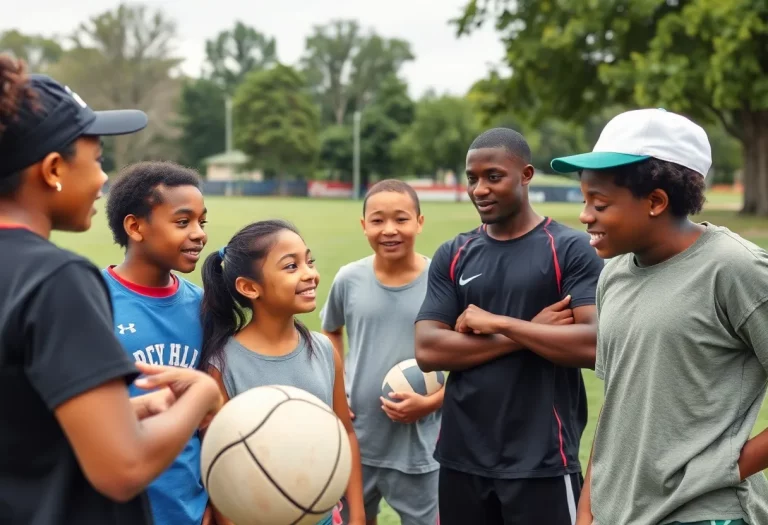News Summary
Female Athletes United has filed a lawsuit against Minnesota’s transgender athlete policy, highlighting concerns over fairness in women’s sports. The plaintiffs, three high school softball players, assert that allowing transgender girls to compete creates an uneven playing field. The litigation has sparked responses from local lawmakers and advocates, intensifying the national debate over inclusion and equality in athletics.
Minneapolis in the Spotlight: Softball Players and Advocacy Group Sue Over Transgender Policy
In a significant legal move, a Texas-based advocacy group known as Female Athletes United is taking a stand against Minnesota’s policies regarding transgender athletes. The group has filed a lawsuit against the state’s Attorney General and key figures within the education and civil rights sectors. This action brings a spotlight onto the contentious topic of transgender participation in women’s sports, raising essential questions about fairness, inclusion, and equality in athletic competition.
The Lawsuit’s Claims
The lawsuit is all about the current policy that allows transgender women and girls to participate in sports that match their gender identity. According to the plaintiffs, which include three high school softball players, this policy creates an uneven playing field for biological girls. The students assert that transgender girls often possess physical advantages such as being “bigger, stronger, and taller,” leading to serious concerns regarding competitive fairness and safety during contests.
Responses Unfold
The response from state officials has been quite vocal. DFL Representative Leigh Finke has come forward, labeling the lawsuit as a tactic aimed at marginalizing transgender individuals. Finke emphasized that Minnesota law is designed to ensure that transgender people have the right to participate in various communities, including athletics. She pointed out that there is no evident link between the presence of transgender athletes and any increased danger posed to fellow competitors. The ongoing dialogue indicates a sharp divide on what fairness means in the realm of sports.
Political Tensions Rise
Republican Representative Peggy Scott has been an advocate for restricting transgender athletes from competing in girls’ sports. Earlier this year, Scott introduced a bill aimed at banning transgender participation in these activities. Although this bill was unsuccessful, her stance reflects a significant faction within Minnesota’s political landscape that is keen on maintaining traditional boundaries in sports. Scott reiterated her view that girls’ sports should exclusively be for biological girls, further fueling the conversation on this hot-button issue.
Legal Implications and Reactions
Attorney General Keith Ellison has been vocal regarding the implications of prohibiting transgender athletes, arguing that such actions would violate the Minnesota Human Rights Act (MHRA). He believes that preventing transgender athletes from participating in sports aligned with their gender identity would counteract the core definition of gender established by the state. Ellison’s office has made it clear that they intend to defend the rights of all students to participate in sports, citing the numerous benefits sports provide to young individuals.
A Broader Context
The lawsuit is not just a Minnesota issue; it resonates with a national conversation surrounding transgender athletes in high school and collegiate sports. Recent debates in various states have seen similar proposals to limit transgender participation, with some measures failing to pass. Federal funding has also been a concern, particularly following an executive order that was introduced by a former administration, targeting transgender athletes.
Moreover, organizations like the NCAA have faced challenges in tracking the number of transgender athletes and revising their policies consistently. This lack of clarity complicates the situation further and raises questions about how institutions can balance inclusivity with fairness in competitive environments.
Looking Ahead
The legal battle brought forth by Female Athletes United and supported by high school players marks a crucial chapter in the ongoing discourse on gender and sports. As Minnesota navigates these complex issues, the outcome of this lawsuit could have far-reaching implications, not only within the state but also across the nation. As the conversation unfolds, everyone from lawmakers to parents and student-athletes will be watching closely to see how this pivotal issue continues to develop.
Deeper Dive: News & Info About This Topic
LIVE BALL Resources
Controversy Erupts in Jurupa Valley Over Transgender Athlete’s Triumphs
Blue Hill Coach Advocates for Transgender Athletes in Girls’ Sports
Quakertown Lawsuit Questions Fairness in School Athletics
Controversy Erupts Over Transgender Athletes in NCAA Women’s Sports Following Government Directive
NCAA Imposes New Policy Restricting Women’s Sports Participation to Assigned Female Athletes
Trump Signs Executive Order Banning Transgender Athletes from Women’s Sports, Sparking Controversy and Potential Legal Action
Austin Attorney General Ken Paxton Sues NCAA Over Transgender Athletes in Women’s Sports
NCAA President Faces Senate Scrutiny Over Transgender Athlete Policies Amid Growing Controversy
Additional Resources
- Fox News: Ex-Vikings Player Rips Minnesota Leaders
- Wikipedia: Opposition to Transgender Rights
- New York Post: California Track Meet Turns into Rally
- Google Search: Transgender Athletes Debate
- New York Times: Trans Athletes in College Sports
- Google Scholar: Transgender Athletes in College Sports
- Fox News: Colorado School District Sues State
- Encyclopedia Britannica: Transgender Athletes in School Sports
- AP News: Maine Education Department and Transgender Athletes
- Google News: Transgender Athletes Education Policies


